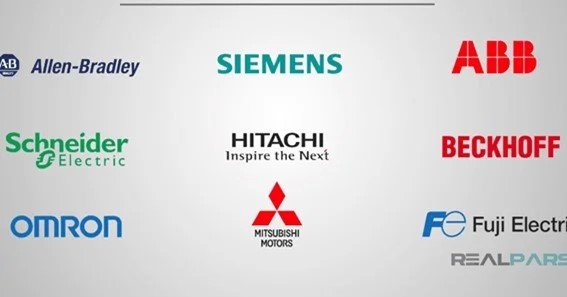ABB Ltd. is a global leader in robotics, industrial automation, and electrification products. However, the company operates in a competitive market with many players vying for dominance in these sectors. This article will dive deep into ABB competitors, looking at the top competitors of ABB and exploring how they compare in the fields of robotics and industrial automation.
ABB Competitors: An Overview
ABB is a significant player in the fields of automation, robotics, and electrification, but it faces stiff competition from several companies. The companies competing with ABB are highly innovative and well-established, making the industrial automation landscape both dynamic and competitive. In this section, we’ll look at the major competitors of ABB and how they compare.
Top Competitors of ABB in Industrial Automation
1. Siemens
When discussing ABB competitors, Siemens is often mentioned first. The comparison of ABB vs Siemens is one of the most discussed rivalries in industrial automation. Siemens, a German multinational, is a giant in sectors like automation, electrification, and digitalization. It offers a broad range of products and services, directly competing with ABB across various industrial sectors.
- Strengths: Siemens has a strong presence in software-driven automation and is advancing rapidly in digital transformation technologies.
- Weaknesses: Siemens’ diversified business can sometimes spread resources thin across its various sectors.
2. Schneider Electric
Schneider Electric, a French multinational, is another of ABB rivals in industrial automation. Schneider excels in energy management and automation solutions, often competing with ABB in building automation and smart grid solutions.
- Strengths: Schneider’s focus on energy efficiency and its commitment to sustainability are key differentiators.
- Weaknesses: Schneider faces challenges in integrating its hardware and software solutions seamlessly across different sectors.
3. Rockwell Automation
Rockwell Automation is one of the top industrial automation competitors for ABB, particularly in North America. Specializing in automation solutions for industrial production, Rockwell competes with ABB in sectors such as manufacturing and process control.
- Strengths: Rockwell’s strong focus on industrial automation and integration of digital transformation technologies makes it a formidable competitor.
- Weaknesses: Rockwell’s focus is narrower than ABB’s, which may limit its reach in some global markets.
4. Mitsubishi Electric
Mitsubishi Electric is a global competitor that specializes in robotics, industrial automation, and power systems. It is one of the significant global rivals of ABB, particularly in Asia, and competes in both the automation and electrification sectors.
- Strengths: Mitsubishi has a strong presence in robotics and factory automation, particularly in the automotive and electronics sectors.
- Weaknesses: Its geographic focus on Asia could be seen as limiting compared to ABB’s broader international presence.
5. Honeywell
Honeywell is another key player in automation and process control technologies. It is among the major competitors of ABB in sectors like aerospace, energy, and industrial production.
- Strengths: Honeywell’s diversified business portfolio and strong presence in critical industries make it a tough competitor for ABB.
- Weaknesses: Honeywell’s focus on multiple industries can sometimes dilute its impact in the automation space.
ABB Market Competition: Key Areas
The ABB market competition spans several critical sectors, including:
- Robotics: ABB’s robotics division competes fiercely with companies like Fanuc and Yaskawa, in addition to Siemens and Mitsubishi Electric.
- Automation: In industrial automation, ABB faces challenges from Siemens, Rockwell, and Honeywell, all of whom are pushing the boundaries of digital transformation and smart factory technologies.
- Electrification: Schneider Electric and Siemens remain the top contenders in the electrification space, particularly in energy management and smart grid solutions.
Competition in Robotics and Automation
ABB is a market leader in robotics and automation, but it faces fierce competition in robotics and automation from rivals like Fanuc, Yaskawa, and KUKA, who specialize in robotic solutions. These companies are known for their innovation in advanced robotics, which poses challenges for ABB’s market share.
Conclusion
The top competitors of ABB—Siemens, Schneider Electric, Rockwell Automation, Mitsubishi Electric, and Honeywell—are formidable players in the global markets of automation, electrification, and robotics. Each company has unique strengths and weaknesses, making the competitive landscape highly dynamic. For ABB, staying ahead in innovation and maintaining strong global partnerships will be essential to maintain its leading position against these industrial automation competitors.
FAQ
- Who are ABB’s main competitors?
ABB’s main competitors include Siemens, Schneider Electric, Rockwell Automation, Mitsubishi Electric, and Honeywell. - How does ABB compare with Siemens?
ABB vs Siemens is a key rivalry, with both companies leading in industrial automation and electrification. Siemens has a stronger focus on digital transformation, while ABB excels in robotics and industrial automation. - What industries do ABB competitors operate in?
ABB competitors operate in industries like industrial automation, electrification, robotics, energy management, and process control. - Why is Rockwell Automation a competitor to ABB?
Rockwell Automation competes with ABB in industrial automation, particularly in manufacturing and process control technologies. - What makes ABB’s competition in robotics so intense?
ABB faces competition in robotics from companies like Fanuc, Yaskawa, and KUKA, who specialize in advanced robotics solutions for various industries.
In summary, the ABB competitors are well-established players across various sectors of industrial automation, electrification, and robotics. As technology continues to evolve, ABB must continue to innovate and strategize to maintain its market position against these formidable global rivals.
Disclaimer: This article is for informational purposes only and should not be taken as financial advice. Always consult a financial advisor for investment decisions.










